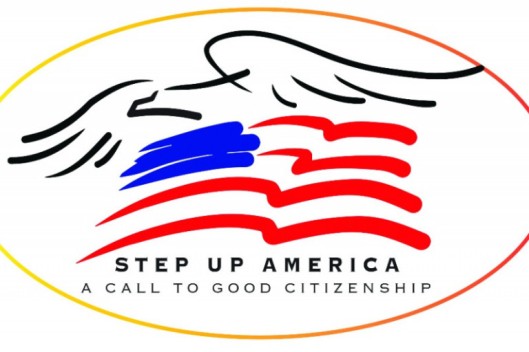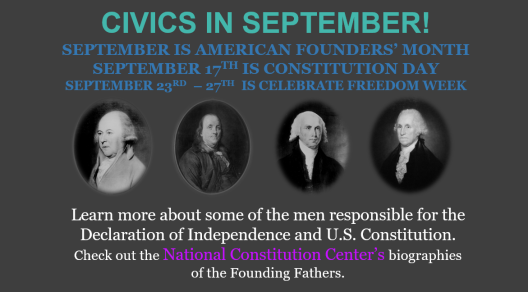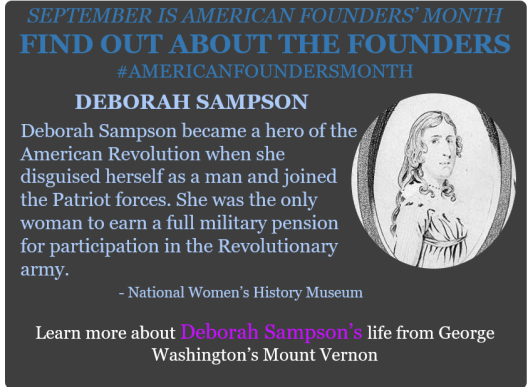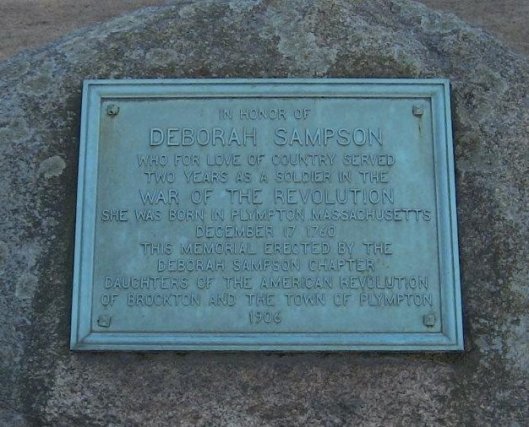As part of our Wednesday webinar roundup, we are excited to announce our September Confab call featuring Purple Project for Democracy. Purple is a non-partisan coalition, campaign and movement to rediscover and recommit to democratic values and institutions. Learn more about the opportunities for the dialogue and deliberation field to contribute to the November launch campaign and the next phases of this effort. This free call will be on Monday, September 30th from 1-2 pm Eastern, 10- 11 am Pacific. Register today so you don’t miss out on this exciting opportunity!
Here are the upcoming D&D online events happening over the next few weeks, including NCDD sponsor org The Courageous Leadership Project, NCDD member org National Issues Forums Institute and Living Room Conversations, as well as, from the International Association of Facilitators (IAF) and the International Associate for Public Participation (IAP2).
NCDD’s online D&D event roundup is a weekly compilation of the upcoming events happening in the digital world related to dialogue, deliberation, civic tech, engagement work, and more! Do you have a webinar or other digital event coming up that you’d like to share with the NCDD network? Please let us know in the comments section below or by emailing me at keiva[at]ncdd[dot]org, because we’d love to add it to the list!
Upcoming Online D&D Events: Living Room Conversations, IAF, The Courageous Leadership Project, ICMA
September Confab about Purple Project for Democracy

Monday, September 30th
10 am Pacific, 1 pm Eastern
We are excited to announce our September Confab Call, featuring a new initiative that is preparing for November launch – Purple Project for Democracy. Purple is a non-partisan coalition, campaign and movement to rediscover and recommit to democratic values and institutions. The folks behind the project are building momentum for their November launch, and on this Confab we’ll learn more about how dialogue and deliberation can play a role in it.
Purple is aiming to help people recommit to democratic values, but also to stimulate civic engagement. During the month of November, Purple hopes to have local conversations which can help to stimulate the national effort. The hope of the organizers is that members of NCDD will participate in this effort by hosting conversations in their communities.
REGISTER: http://ncdd.org/30320
International Association of Facilitators webinar – The Power of Choice
 Wednesday, September 25th
Wednesday, September 25th
6:30 am Pacific, 9:30 am Eastern
By 2020, there will be five generations working side-by-side in the workplace. We are all different and unique, but with this comes different ways of working, approaches, mindsets, feelings, behaviors, motivations and needs. This can lead to assumptions, misunderstandings, miscommunication, conflict and under-performance. Building a culture of psychological safety, where everyone feels accepted and respected, allows everyone to work in harmony, makes the most of their differences and drives a sense of empowerment to achieve anything. In this webinar, we will explore the strength of working in a team that is diverse and inclusive. You will discover how to value difference to build connections that enable collaboration, healthy challenge and powerful outcomes towards common goals.
REGISTER: www.iaf-world.org/site/events/webinars
NIFI CGA forum: Future of Small Towns
 Wednesday, September 25th
Wednesday, September 25th
11:30 am Pacific, 2:30 pm Eastern
NIFI would like to invite you to participate in an online forum on the future of our small-town communities. These forums are a project of the German Marshall Fund alumni network, and are going on throughout the US and even in Europe. The results from these forums will be reported to a new generation of leaders focusing on urban/rural issues who will be making policies that directly affect our communities, our economies, our families and our day-to-day lives. This online forum is for women from rural communities and small towns.
REGISTER: www.nifi.org/en/events/future-our-small-towns
September CGA Forum Series: Safety and Justice: How Should Communities Reduce Violence?
 Wednesday, September 25th
Wednesday, September 25th
4 pm Pacific, 7 pm Eastern
Please join us for a Common Ground for Action (CGA) online deliberative forum on Safety and Justice: How Should Communities Reduce Violence? If you’ve never participated in a CGA forum, please watch the “How To Participate” video before joining. You can find the video link here. If you haven’t had a chance to review the issue guide, you can find a downloadable PDF copy at the NIF website here.
REGISTER: www.nifi.org/en/events/september-cga-forum-series-safety-and-justice-how-should-communities-reduce-violence
International Association of Facilitators webinar – What facilitators can do in disaster situations? (English)
 Thursday, September 26th
Thursday, September 26th
6:30 am Pacific, 9:30 am Eastern
In this webinar we will invite the participating colleagues to reflect together on different ways in which we can support communities that face situations of disasters or other crises, applying our knowledge and experience as professional facilitators. In addition, we will present the principles of the Model of psychosocial intervention in crises and disasters of the Global Facilitators Serving Communities – GFSC network. This Model, called Crisis – Change – Choice, has been successfully applied in many countries around the world, allowing to strengthen the resilience and autonomy of various types of communities, in response to different types of crises and disasters.
REGISTER:www.iaf-world.org/site/events/what-facilitators-can-do-disaster-situations-english
September CGA New Moderator Workshop
 Thursday, September 26th
Thursday, September 26th
9:30 am Pacific, 12:30 pm Eastern
Join this workshop on how to moderate a Common Ground for Action (CGA) deliberative forum. This is a TWO DAY, TWO PART workshop. Part 1 is Wednesday September 25th at 7:00p ET/4:00pm PT; Part 2 is September 26th at 12:30p ET/9:30am PT. Please plan to attend both parts of this workshop.
In session one (Sept 25th) we will participate in our own CGA forum. In session two (Sept 26th), we will discuss how to set up a CGA, what the responsibilities of a CGA moderator are, and hacks and tricks for moderating. We will then work in partners to set up and moderate a forum. We will conclude with a questions and answers about how to integrate CGA into your practice, classroom, and/or community work.
REGISTER: www.nifi.org/en/events/september-cga-new-moderator-workshop
September CGA Moderator Practice Sessions
 Friday, September 27th
Friday, September 27th
9 am Pacific, 12 pm Eastern
This is an open practice session for new and seasoned Common Ground for Action online deliberation moderators. We will play around with features, workshop deliberative questions, and get practice moderating a robust online deliberative forum.
REGISTER: www.nifi.org/en/events/september-cga-moderator-practice-sessions
Living Room Conversations Training (free): The Nuts & Bolts of Living Room Conversations

Thursday, October 3rd
2 pm Pacific, 5 pm Eastern
Join us for 90 minutes online to learn about Living Room Conversations. We’ll cover what a Living Room Conversation is, why we have them, and everything you need to know to get started hosting and/or participating in Living Room Conversations. This training is not required for participating in our conversations – we simply offer it for people who want to learn more about the Living Room Conversations practice.
Space is limited so that we can offer a more interactive experience. Please only RSVP if you are 100% certain that you can attend. This training will take place using Zoom videoconferencing. A link to join the conversation will be sent to participants the day before the training.
REGISTER: www.livingroomconversations.org/event/training-free-the-nuts-bolts-of-living-room-conversations-19-2/
Online Living Room Conversation: Relationships Over Politics – 90-Minute Conversation w/ Optional 30-Minute Q & A with Hosts!

Thursday, October 3rd
4 pm Pacific, 7 pm Eastern
Is it possible to use Living Room Conversations with our families and close friends? It is ultimately challenging, because family are more likely to break ‘host and guest’ social norms. The emotional stakes are higher, conversations are colored by long, deeply personal histories and it can feel easier to ‘take the gloves off’ and fight dirty, unconstrained by the politeness usually offered acquaintances. How might we hold the tension of our differences while working to repair connection and not further deepen division within our circle of family and friends?
All sorts of people tell us they want to use the skills they practice in Living Room Conversations to help restore connection with friends and family. So, let’s use a Living Room Conversation to talk about just that! This Living Room Conversation will help us listen and learn about where we have different opinions, along with shared ideas about how to best navigate time with family & friends (who may not share our view of the world). HERE is the conversation guide.
REGISTER: www.livingroomconversations.org/event/relationships-over-politics-90-minute-conversation-w-optional-30-minute-q-a-with-hosts-2/
Online Living Room Conversation: Race and Ethnicity – A Special Three-Part Series

Tuesday, October 8th
10:30 am Pacific, 1:30 pm Eastern
Check out this four-minute video from our first Race & Ethnicity Conversation Series to get a taste of this conversation! In this series of three conversations, participants explore the complexities of the concepts of Race, Ethnicity, and their impacts on people from all walks of life. We will cover new questions from the three Race & Ethnicity conversation guides found here. The following conversation series will occur on October 15th and 22nd.
REGISTER: www.livingroomconversations.org/event/race-and-ethnicity-a-special-three-part-series/
IAP2 Monthly Webinar – 2019 IAP2 Projects Of The Year (USA & Canada)
 Tuesday, October 8th
Tuesday, October 8th
11 am Pacific, 2 pm Eastern
We are excited to feature the two Core Values Award winners for Project of the Year.
The Portland Bureau of Transportation (PBOT) won the USA Project of the Year award for “PedPDX”. This project addresses discrepancies in pedestrian infrastructure around the Rose City, and involved people of a variety of different ethnic and social groups. One city council member referred to the public engagement process as the most robust and comprehensive he had ever seen.
The Canadian Partnership Against Cancer used a variety of techniques and approaches in reviewing Canada’s Cancer Strategy, focusing on “underserviced” populations — people in remote areas, Indigenous people, new Canadians, LGBTQ people, for example — often don’t get the same level of cancer care and treatment that others do. The Partnership managed to bring these voices to the table and help re-design a cancer strategy that puts them on an equal footing.
REGISTER: https://iap2usa.org/event-3404391
International Association of Facilitators webinar – Becoming a CPF with the IAF
 Tuesday, October 8th
Tuesday, October 8th
3 pm Pacific, 6 pm Eastern
Making the decision to seek the IAF Certified Professional Facilitator (CPF) accreditation can be hard. Common questions people ask are What’s involved? How much time will it take? Will I meet the requirements? and What if I don’t pass? In response to strong interest from members we will be exploring these questions at a webinar with hosts that have years of experience as professional facilitators and as IAF Assessors.
Professional Facilitator (CPF) accreditation can be hard. Common questions people ask are What’s involved? How much time will it take? Will I meet the requirements? and What if I don’t pass? In response to strong interest from members we will be exploring these questions at a webinar with hosts that have years of experience as professional facilitators and as IAF Assessors.
REGISTER: www.iaf-world.org/site/events/webinars
The Courageous Leadership Project webinar – Brave, Honest Conversations
 Wednesday, October 9th
Wednesday, October 9th
9 am Pacific, 12 pm Eastern
Some conversations are hard to have. Fear and discomfort build in your body and you avoid and procrastinate or pretend everything is fine. Sometimes you rush in with urgency, wanting to smooth things over, fix them, and make them better. Sometimes you go to battle stations, positioning the conversation so you have a higher chance of being on the “winning” side. NONE OF THIS WORKS. Instead, it usually makes a hard conversation harder; more divided, polarized, and disconnected from others. The more people involved, the harder the conversation can be. I believe that brave, honest conversations are how we solve the problems we face in our world – together.
In this webinar, we will cover: What is a Brave, Honest Conversation ? Why have one? What can change because of a brave, honest conversation? How do you have one? What do you need to think about and do? How do you prepare yourself for a brave, honest conversation?
? Why have one? What can change because of a brave, honest conversation? How do you have one? What do you need to think about and do? How do you prepare yourself for a brave, honest conversation?
REGISTER: www.bravelylead.com/events/bhcfreewebinar
 Purple is aiming to help people recommit to democratic values, but also to stimulate civic engagement. This is where the dialogue and deliberation field might be able to help most!
Purple is aiming to help people recommit to democratic values, but also to stimulate civic engagement. This is where the dialogue and deliberation field might be able to help most! NCDD’s Confab Calls are opportunities for members (and potential members) of NCDD to talk with and hear from innovators in our field about the work they’re doing and to connect with fellow members around shared interests. Membership in NCDD is encouraged but not required for participation. Confabs are free and open to all. Register ASAP if you’d like to join us!
NCDD’s Confab Calls are opportunities for members (and potential members) of NCDD to talk with and hear from innovators in our field about the work they’re doing and to connect with fellow members around shared interests. Membership in NCDD is encouraged but not required for participation. Confabs are free and open to all. Register ASAP if you’d like to join us!
 The overarching goal of this new initiative, Community Voices for Health, is to support ongoing ways for people to engage—to help their voices be a part of decisions around health care, social service, and public health systems; to support their efforts to solve problems; and to strengthen their community networks. We will award up to six grants, one per state, to lead organizations in 20 eligible states (see “Eligibility Criteria” below). Lead organizations should be public charities that are nonprofit community-based organizations or statewide networks of community-based organizations. Although the grant is awarded to one lead organization, each grantee will be expected to work with a range of partners and other stakeholders—such as public agencies; health care systems; public health departments and leaders; researchers; university-based centers; membership associations; and social service providers.
The overarching goal of this new initiative, Community Voices for Health, is to support ongoing ways for people to engage—to help their voices be a part of decisions around health care, social service, and public health systems; to support their efforts to solve problems; and to strengthen their community networks. We will award up to six grants, one per state, to lead organizations in 20 eligible states (see “Eligibility Criteria” below). Lead organizations should be public charities that are nonprofit community-based organizations or statewide networks of community-based organizations. Although the grant is awarded to one lead organization, each grantee will be expected to work with a range of partners and other stakeholders—such as public agencies; health care systems; public health departments and leaders; researchers; university-based centers; membership associations; and social service providers.








 Many of us are frustrated by the divisive nature of our public discourse, mistrust and broken promises. We lack hope that we can bridge our divides, come together and get things done.
Many of us are frustrated by the divisive nature of our public discourse, mistrust and broken promises. We lack hope that we can bridge our divides, come together and get things done.

 Wednesday, September 25th
Wednesday, September 25th Wednesday, September 25th
Wednesday, September 25th
 Tuesday, October 8th
Tuesday, October 8th Professional Facilitator (CPF) accreditation can be hard. Common questions people ask are What’s involved? How much time will it take? Will I meet the requirements? and What if I don’t pass? In response to strong interest from members we will be exploring these questions at a webinar with hosts that have years of experience as professional facilitators and as IAF Assessors.
Professional Facilitator (CPF) accreditation can be hard. Common questions people ask are What’s involved? How much time will it take? Will I meet the requirements? and What if I don’t pass? In response to strong interest from members we will be exploring these questions at a webinar with hosts that have years of experience as professional facilitators and as IAF Assessors. Wednesday, October 9th
Wednesday, October 9th